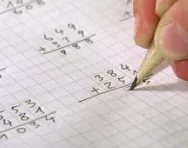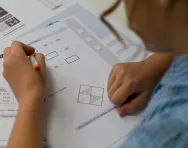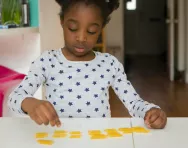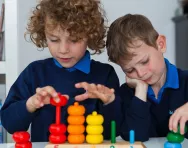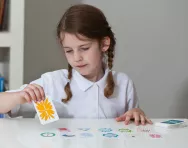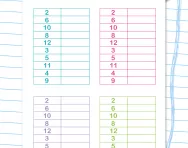Important update from TheSchoolRun
For the past 13 years, TheSchoolRun has been run by a small team of mums working from home, dedicated to providing quality educational resources to primary school parents. Unfortunately, rising supplier costs and falling revenue have made it impossible for us to continue operating, and we’ve had to make the difficult decision to close. The good news: We’ve arranged for another educational provider to take over many of our resources. These will be hosted on a new portal, where the content will be updated and expanded to support your child’s learning.
What this means for subscribers:
- Your subscription is still active, and for now, you can keep using the website as normal — just log in with your usual details to access all our articles and resources*.
- In a few months, all resources will move to the new portal. You’ll continue to have access there until your subscription ends. We’ll send you full details nearer the time.
- As a thank you for your support, we’ll also be sending you 16 primary school eBooks (worth £108.84) to download and keep.
A few changes to be aware of:
- The Learning Journey weekly email has ended, but your child’s plan will still be updated on your dashboard each Monday. Just log in to see the recommended worksheets.
- The 11+ weekly emails have now ended. We sent you all the remaining emails in the series at the end of March — please check your inbox (and spam folder) if you haven’t seen them. You can also follow the full programme here: 11+ Learning Journey.
If you have any questions, please contact us at [email protected]. Thank you for being part of our journey it’s been a privilege to support your family’s learning.
*If you need to reset your password, it will still work as usual. Please check your spam folder if the reset email doesn’t appear in your inbox.
Maths for parents

According to recent figures, there are six million adults in the UK who struggle with maths. One study by the Basic Skills Agency found that almost half – 48 percent – of the 12,500 people surveyed had below-average mathematic skills.


Start a unique learning programme!
- Weekly programme for each school year
- Worksheets sent direct to your inbox
- Keeps your child's learning on track
Are we scared of maths?
It seems that children, parents and teachers can all be quite anxious about maths. In her book Maths and Dyslexics, Anne Henderson tells of a case where a student fainted during a maths lesson because he feared his weakness with subtraction was about to be found out. And some teachers have confessed that they do not enjoy teaching maths. One secondary head teacher said she experienced ‘sweaty palms and shivers’ each time she thought about maths.
Most parents are willing and ready to help their children with most areas of their school and homework, however when it comes to maths some tend to be more reluctant. Mum of three, Sandra Stevens says, “As soon as my kids brought out their maths homework, I would just freeze. My mind would go blank and I just felt totally unable to help them.”
Overcoming your maths demons
Sandra eventually bit the bullet and decided to tackle her trouble with maths head on: “In the end, I realised that if I was to be any help to my kids at all, I needed to swot up on the techniques and methods they learn today, and in a sense teach myself maths all over again. I asked the class teacher to let me see some of the resources she was using to teach with, and this also helped me adapt to new forms of maths. I also did some internet research and chatted to other mums. I now feel a lot more confident to offer my kids support, and it's even helped my personal maths skills!'
If you want to hone your maths skills, many adult education centres and colleges offer basic or key skills courses. You could also take advantage of the many distance learning opportunities available on and offline. Going to see your child’s teacher is an important step, too. They will able to offer helpful advice and tips, and some schools run basic skills programmes designed to help parents intent on supporting their children’s learning.
How could improving your maths skills help you?
From understanding a newspaper article about inflation to working out the metric equivalent of goods displayed in pounds, we use numeracy all day everyday to support our daily lives.
Some examples of using numeracy in everyday life include:
- sharing bills among several people
- working out the cost of credit instalments
- working out the unit cost of gas or electricity
- calculating your shopping bill while at the supermarket
- working out what the ‘10 % off marked price’ offer can save you
These days more and more jobs require people good data handling skills. They may be required to manage budgets, handle payments, accounts and invoices, or to interpret charts, graphs or statistical data. You can always use a calculator but it helps if you have a good idea of what the answer should be, and how to work it out.
So brushing up your maths skills could help you as your child.
